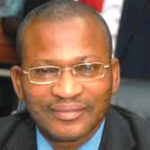THE vice chancellor of the University of Abuja, Professor Abdul-Rasheed Abubakar Na’Allah has said the thought about progress and development of Nigeria as a country would continue to be elusive until concrete steps are taken to encourage research into the national problems and the outcomes genuinely implemented by the authorities.
He accordingly challenged Nigerian scholars and the nation’s university system to take the lead in the critical role of research and providing solutions to multiple challenges confronting the country.
Nigeria is currently at the brink as a result of insecurity being witnessed by Boko Haram insurgency, banditry, with schools now as the soft targets, kidnapping for ransom, robbery, ethnic militia and tribal conflict, among other social vices in the face of endemic poverty in the country.
Na’Allah, who spoke at the University of Abuja First Undergraduate Research Day with the theme, ‘Promoting National Development Through Research’, admitted that Nigerian universities have not done much in terms of research into the national problems, and coming up with solutions to either nip the issues in the bud or eradicate the challenges.
Some stakeholders, however, said a number of researches conducted by tertiary institutions in Nigeria were allowed to gather dust in the shelves because successive administrations in the country do not deem it necessary to harness them for national development.
Some also talked about the lack of synergy between universities and industry, which the current Executive Secretary of National Universities (NUC), Professor Abubakar Adamu Rasheed said his administration is pursuing the Triple Helix Model, that is the interaction between the academia (the university), industry and government to foster economic and social development of the country.
The vice chancellor noted that what he has initiated was to encourage undergraduate students at all levels in the university, not only to develop keen interest in research, but also to know Nigeria’s problems and how to resolve them by establishing a Centre for Undergraduate Research Fund.
He said the university started the centre as catch them young, whereby financial support, mentorship and other necessary support are given to them to succeed. During the Undergraduate Research Day, Na’Allah presented a cheque for N2.2 million to eight students of the university who won research grants from the university’s Centre for Undergraduate Research Fund.
The vice chancellor, while making veiled reference to incessant strike and consequent disruption of academic activities, especially the recent prolonged ASUU strike, said: “Universities are not institutions to be closed down in a day. Funding cannot be enough, institutions have to look inward.
“The problem is that we are not serious. The truth is that all problems have to do with research. When you say Nigeria is not working, there are crises in this nation, why are universities not researching and coming up with solutions? Everybody is complaining, our universities must get to work.”
The vice chancellor who stressed the importance of universities in developing nations, said such can only be achieved by investing in the young ones through research, adding that the university under his leadership would continue to spearhead research and development as a tool for national development.
“I want to encourage all universities in Nigeria and I hope that other universities will have centres of undergraduate research.”
The Director, Centre for Undergraduate Research, Dr Taibat Adebukola Atoyebi, in her remark, said the institution is looking at collaborating with other organisations and industries so as to fund research, expressing regret that Research & Development (R&D) has never been harnessed for the development.
YOU SHOULD NOT MISS THESE HEADLINES FROM NIGERIAN TRIBUNE
We Have Not Had Water Supply In Months ― Abeokuta Residents
In spite of the huge investment in the water sector by the government and international organisations, water scarcity has grown to become a perennial nightmare for residents of Abeokuta, the Ogun State capital. This report x-rays the lives and experiences of residents in getting clean, potable and affordable water amidst the surge of COVID-19 cases in the state.






